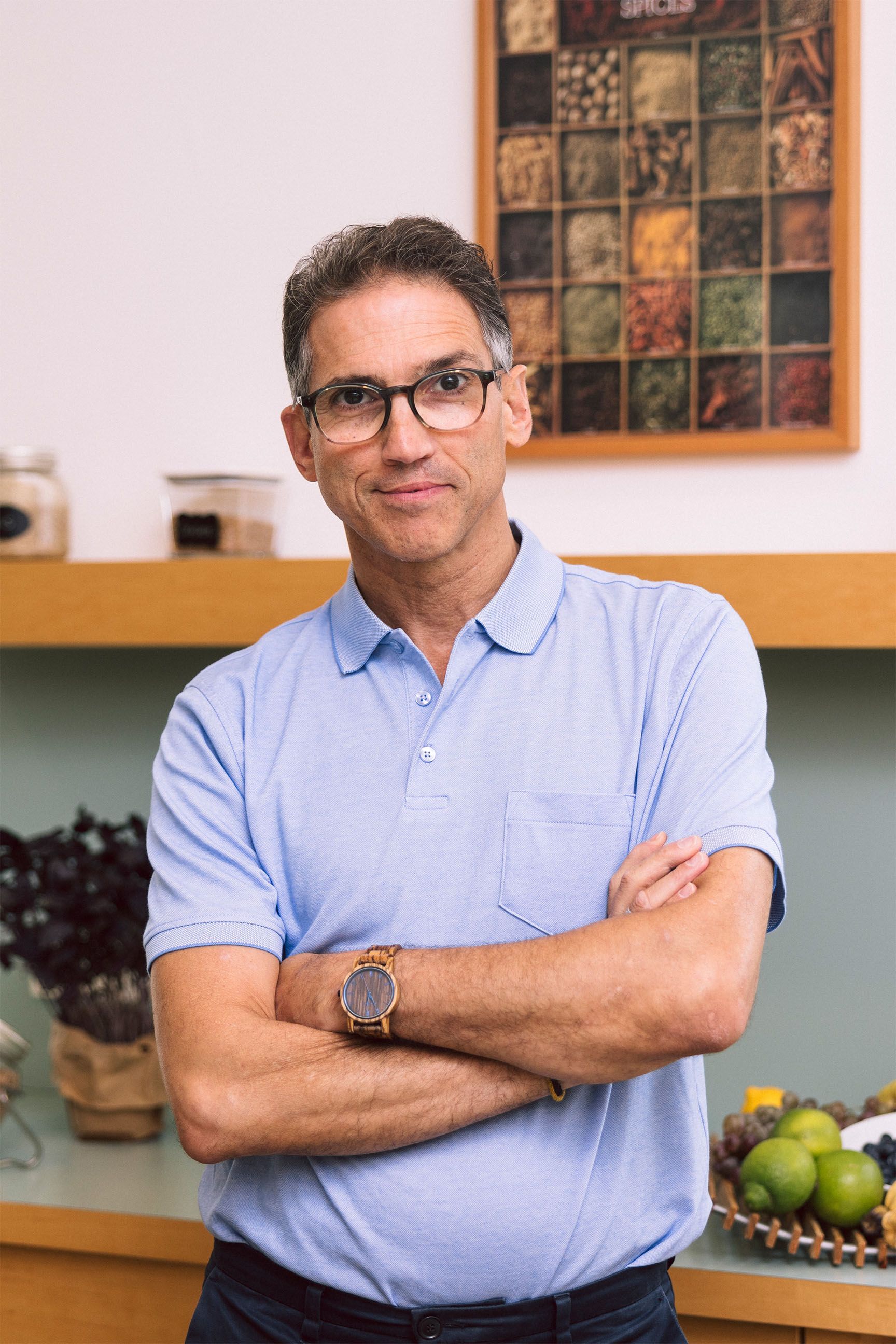INTERVIEW
Can fasting really alleviate illness and promote a long, healthy life?
For more than ten years, doctors and scientists around the world have been studying the therapeutic effects of fasting.
Our Head Physician Dr Yvonne Höfer and our Head of Nutrition, Dipl. oec. troph. Andrea Chiappa, shed light in this interview on the effects of consciously abstaining from food on our body and mind. And what you should bear in mind in order to benefit from it in everyday life in the long term.
DR. MED. YVONNE HÖFER
Chief physician, specialist in general medicine, naturopathy and fasting doctor
You can find more information about Dr. med. Yvonne Höfer here
DR. MED. YVONNE HÖFER:
Therapeutic fasting is a form of consciously abstaining from solid food for a limited period of time. The aim is to regenerate the metabolism and strengthen the immune system. This is achieved through various processes and repair systems that are activated in the body through fasting. For example, autophagy, in which damaged cell components are broken down and recycled. Or the change in energy production, which breaks down fat reserves, improves the metabolism and increases insulin sensitivity. Studies show that fasting in this way can have positive effects on high blood pressure, type 2 diabetes, rheumatic diseases and chronic inflammation, for example. But it is not only the organs that are relieved. It also improves psychological and mental well-being. In short: fasting helps us to lead a healthier life.
ANDREA CHIAPPA:
Basically, therapeutic fasting works according to the age-old principle of the ‘nature of self-regulation’. The healthy abstinence from food challenges numerous bodily systems to readjust themselves. It is like multimodal regulation training: organs and body processes learn to regulate themselves and work normally again. This can be specifically supported with Kneipp treatments, physiotherapy, cardiovascular training and conscious rest phases. If the fasting cure is consciously designed, many people notice enormous changes in their everyday life afterwards: more energy and confidence, a stable blood pressure, a normalisation of eating behaviour with more desire for fresh fruit and vegetables... - all this makes life worth living again.
ANDREA CHIAPPA:
In any case. Fasting is much more than just a break from eating - it has a deep effect on the psyche and the soul. It liberates the senses, access to one's own body awareness and also the joy of life. It can be an intensive encounter with yourself. However, it requires a calm environment during the fasting process, a break from everyday life. Far away from the constant ‘having to do’, media consumption and general sensory overload, fasting can help you to realise yourself again and reflect on yourself and your life. Then ‘encrusted thoughts’ can dissolve of their own accord and new perspectives and insights can emerge. Important life decisions can be made with a clear view and on good grounds.
DR. MED. YVONNE HÖFER:
Yes, fasting allows you to break through habitual thought patterns and focus on your own lifestyle. Consciously abstaining from food raises your awareness of your own needs, habits and automatisms. You realise how little you actually need to be satisfied. This often leads to a reorganisation of priorities.
DR. MED. YVONNE HÖFER:
Above all, it is important to consult a doctor before starting the fast to make sure that abstaining from food is safe for your body. Especially if you have any illnesses and are taking medication. To make the transition to fasting easier for the body, a ‘relief phase’ of 2-3 days before the actual fast is recommended. During this time, you should only eat light food, primarily vegetables and potatoes or rice, and reduce animal proteins and stimulants. During fasting, you should make sure you drink plenty of fluids (at least 2-3 litres, e.g. water, unsweetened tea or clear vegetable broth) and create beneficial rituals. Deliberate moments for exercise and relaxation, such as daily walks and meditation, help to make the fasting experience a positive one.
ANDREA CHIAPPA:
Another important principle is to ask yourself honestly at the beginning: "Why do I want to fast? What do I hope to gain from it? What do I need for myself?" This reflection helps you to have realistic expectations, make the right preparations and mentally adjust to the fasting process. Sufficient time should be set aside for yourself and your daily routines during the fast: Relaxation and rest allow you to check in with yourself; exercise and measures such as Kneipp therapy, dry brushing and colon cleansing support the detoxification processes and make fasting easier. Last but not least, the so-called recovery days after fasting are crucial in order to gently get the body used to solid food again and to preserve the positive effects of fasting for as long as possible. For the reasons we have both mentioned, it is advisable for beginners in particular to fast in a protected and supervised environment, such as the one we can offer here at our clinic.
ANDREA CHIAPPA:
Yes, relaxation is very important because fasting initially puts the body in a kind of stressful state. The release of stress hormones is part of the regulatory training. Relaxation exercises such as yoga, meditation or breathing techniques are then important to calm the nervous system, lower the heart rate and blood pressure and support the body during the fasting process and regeneration. Physically as well as mentally, of course.



